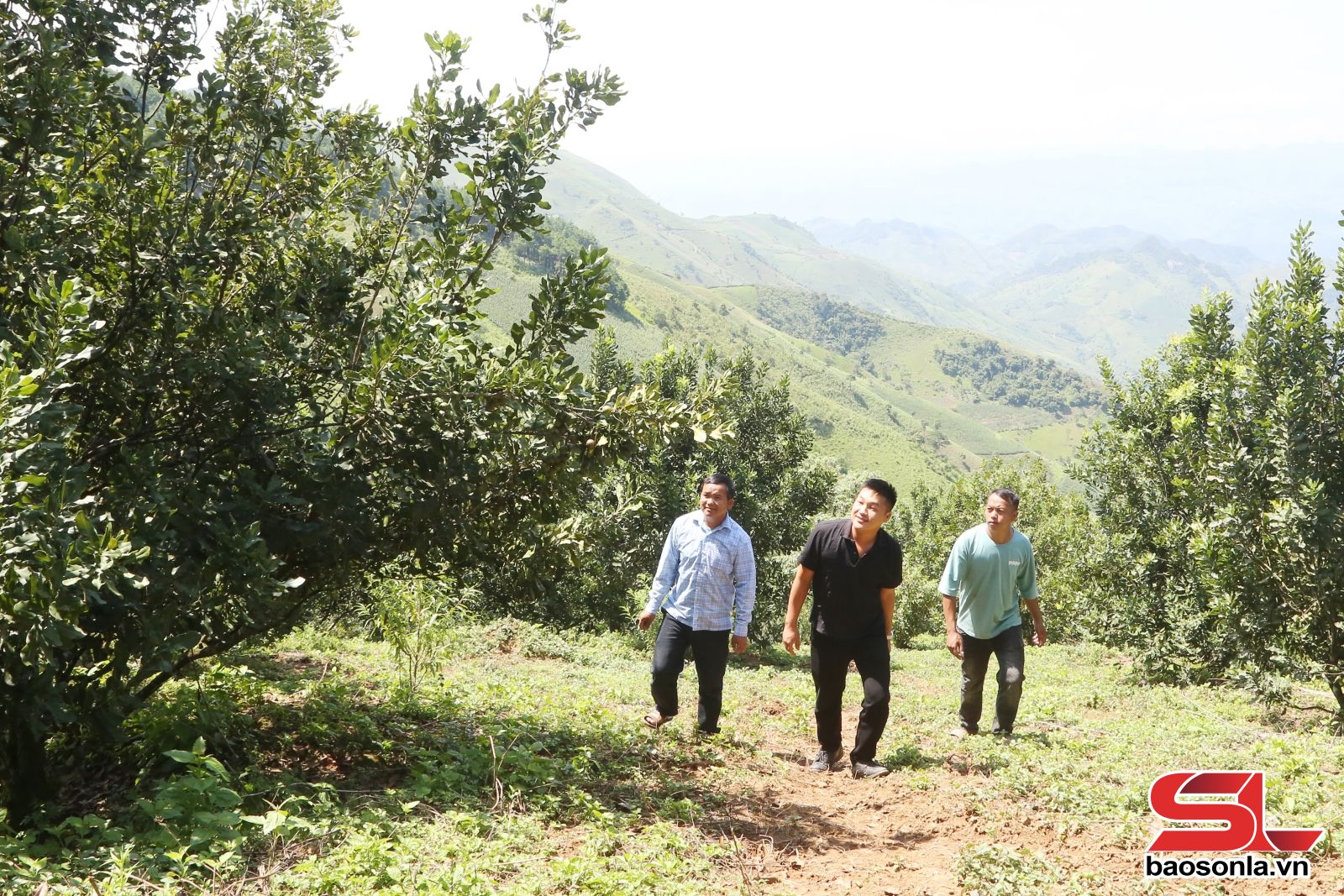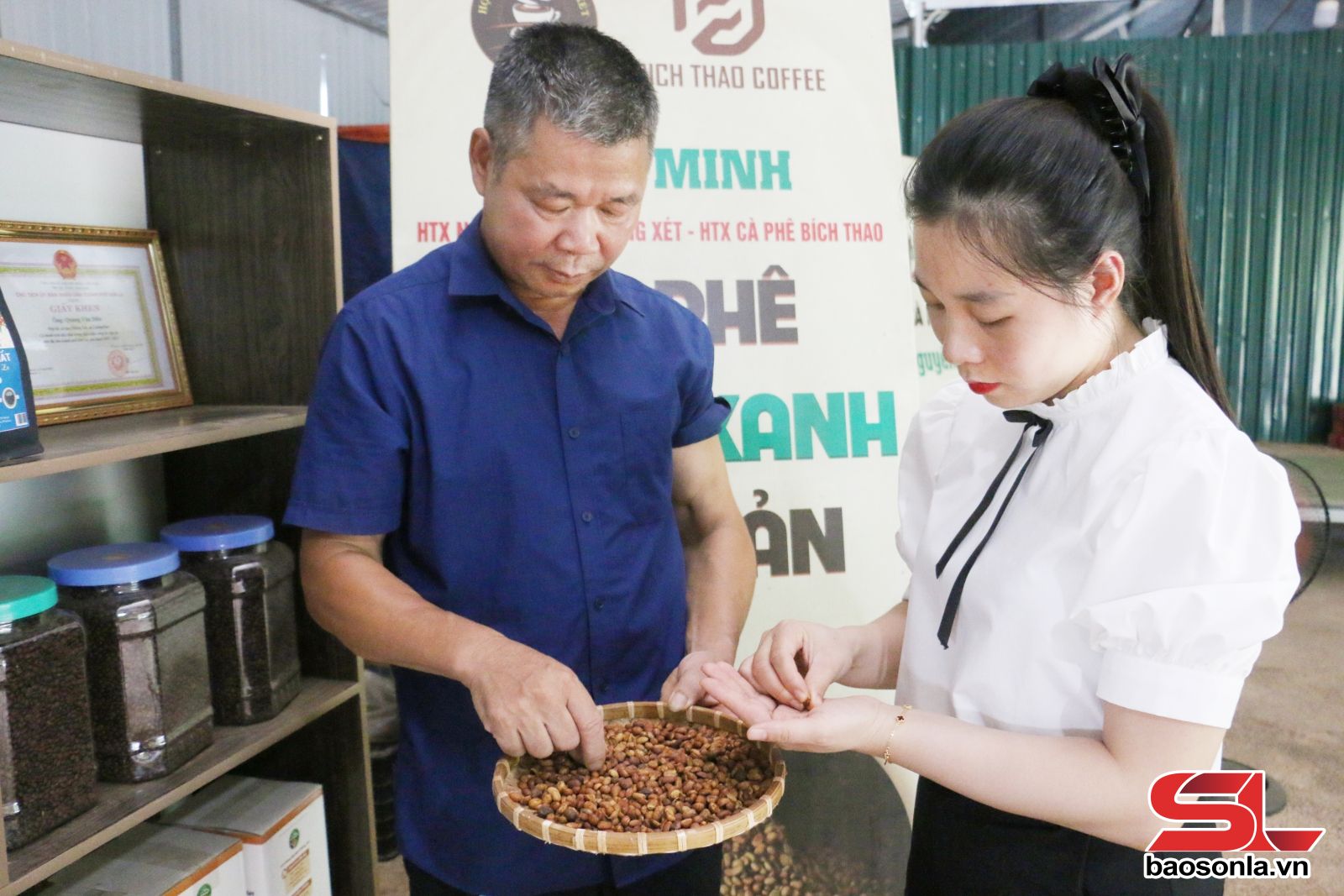

The macadamia garden of Anh Xen Cooperative in Kim Bon commune.
To encourage and strengthen the development of the collective economy and cooperatives, the province has consolidated and expanded the provincial Steering Committee for Collective Economic Development. Communication efforts have been intensified, and various funding sources have been integrated to support the establishment of 37 new cooperatives. Additionally, five awareness-raising conferences have been held for over 200 cooperative founders; 11 training courses have been organised to improve human resource capacity at the commune and ward levels, combined with study tours to exemplary cooperative models in other provinces.
The province has regularly coordinated with the Ministry of Industry and Trade and the People's Committees of Lao Cai and Lang Son provinces to promptly update information on customs clearance, assisting enterprises and cooperatives in production planning and export adjustment. Cooperatives have also been encouraged to participate in trade promotion and product marketing activities. Support has been provided for 59 cooperatives and household businesses to register and promote their products on the Son La e-commerce platform (www.sonla.sanviet.vn) and Sanviet.vn. Moreover, the province facilitated participation in three trade promotion conferences in Quang Ninh, Bac Lieu, and Hanoi, with a total funding of 163 million VND (6,170 USD).
.jpg)
Members of Anh Xen Cooperative in Kim Bon commune inspect the growth of macadamia trees.
Anh Xen Cooperative, established in November 2020 in Suoi On hamlet, Kim Bon commune, consists of seven members. With the goal of modernising production, the cooperative has proactively partnered with enterprises for agricultural product purchasing, learned from effective models, participated in technical training, introduced high-quality crop varieties, and applied scientific advances in production. These efforts have contributed to crop restructuring and increased productivity and economic efficiency.
According to Vang A Xen, Director of the cooperative, it currently cultivates nearly 3 hectares of macadamia, with an expected harvest of over 6 tonnes of fresh nuts this year, generating a revenue of around 400 million VND. The cooperative has also partnered with 20 households to grow 29 hectares of macadamia, providing technical support and ensuring product quality under a clean production model with guaranteed sale.
In addition, several cooperative production chains are operating effectively, including Ngoc Hoang Agricultural Cooperative in Ta Hoc commune with dragon fruit cultivation; Ban On Fruit Cooperative in Thao Nguyen ward with orange production; Chieng Hac Cooperative in Chieng Hac commune with mango production; Nghia Hung Cooperative and Phu Yen Organic Orange Cooperative in Muong Coi commune with orange and tangerine farming; safe vegetable production models of Chieng Phu Agricultural Cooperative in Yen Chau commune; Muong Tac Agricultural Service Cooperative in Phu Yen commune; and Son La Agricultural Products Cooperative in Chieng An ward.
These agricultural cooperatives have significantly boosted member households’ economies by supplying seeds, materials, transferring techniques, and supporting large-scale commodity production aligned with VietGAP and GlobalGAP standards, aiming toward export. As a result, member incomes have notably increased, with average cooperative revenue reaching 2 billion VND per year and regular worker incomes averaging around 72 million VND per year.

Members of Chieng Set Agricultural Cooperative in Chieng An ward collaborate with Bich Thao Coffee Cooperative in growing and processing green coffee beans.
By the end of 2025, the province aims to have 938 agricultural cooperatives, accounting for 82.78% of the total cooperatives. The average income of regular cooperative workers is targeted at 78 million VND per person per year. The provincial People’s Committee has tasked the Department of Finance, the provincial Cooperative Alliance, and relevant agencies to review and prioritise budget allocation for cooperative development.
Focus areas include brand building, quality assurance, trademark registration, and geographical indication for production zones and agricultural products. Trade promotion and product marketing will be strengthened, alongside the introduction of policies to attract businesses and corporations to collaborate in production, processing, and consumption. At the same time, efforts will be intensified to monitor, resolve difficulties, and replicate effective new-style cooperative models.
With comprehensive solutions and clear direction, the effective implementation of cooperative development goals will help improve product quality, build local agricultural brands, expand markets, attract investment, and promote the collective economy. This, in turn, will enhance people’s livelihoods and lay a solid foundation for the province’s sustainable socio-economic development.























You have 500/500 characters left
Please enter 5 or more characters!!!